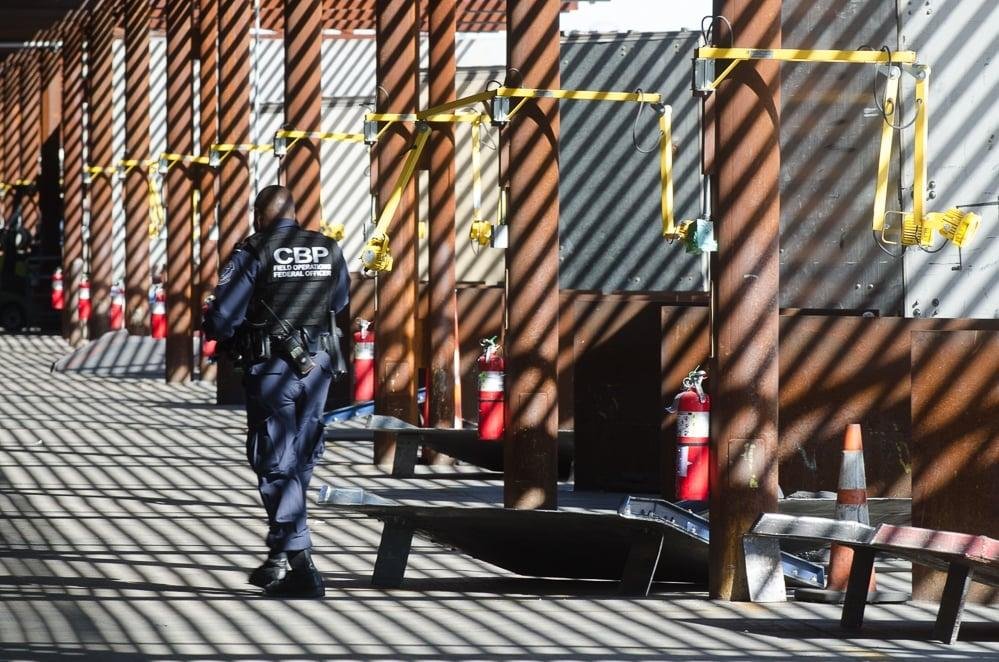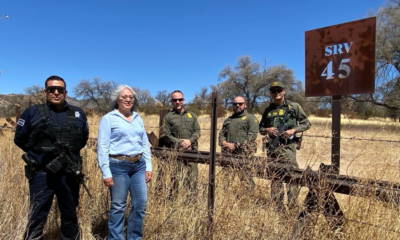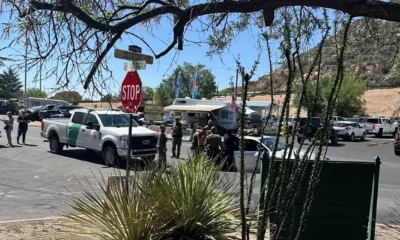border
9th Circuit Declares ‘Metering’ of Asylum-Seekers at Border Unlawful

The Ninth Circuit Court of Appeals affirmed on Wednesday that the “metering” policy, which allowed U.S. Customs and Border Protection (CBP) to deny asylum-seekers access at the U.S.-Mexico border, is unlawful. This decision follows an earlier ruling by a trial judge indicating that individuals turned away under the metering policy cannot be required to first seek asylum in a country they traveled through before entering the U.S., especially since a subsequent Trump-era policy, the “Asylum Transit Rule,” was blocked.
Judge Michelle Friedland, appointed by President Barack Obama, stated in the majority opinion that the government’s assertion—that noncitizens must cross the border to apply for asylum—misinterprets the legal definition of “arrival.” She emphasized that presenting oneself at the border constitutes reaching the destination necessary for initiating asylum claims.
Friedland criticized the government’s approach, suggesting it created an incentive for asylum-seekers to enter the U.S. unlawfully when faced with potential denial at official ports of entry. “We do not think Congress would have created that incentive,” she noted.
Responding to the ruling, Nicole Elizabeth Ramos, director of the Border Rights Project at Al Otro Lado, pointed out the lengthy legal process that led to this determination. She remarked, “It took seven years and untold sums of taxpayer dollars for the U.S. government to learn a legal lesson that should have been apparent from the beginning.” However, she cautioned that the Biden administration’s practices have also shifted, with new regulations making most asylum seekers at the southern border categorically ineligible.
The metering policy originated in 2016, during the final months of the Obama administration, aimed at managing the increasing number of Haitian immigrants seeking asylum at the San Ysidro Port of Entry. Judge Cynthia Bashant, also appointed by Obama, previously sided with immigrant rights advocates, identifying that officials breached their duties by denying inspections and referrals for asylum-seekers.
Friedland’s opinion highlighted the dire conditions many asylum-seekers faced while waiting in Mexico, where they often lived in inadequate circumstances and were vulnerable to violence. Many were forced to wait indefinitely for their chance to be processed. “Some were murdered in Mexico while waiting for an opportunity to be processed by U.S. officials,” she wrote.
The dissenting opinion came from Judge Ryan Nelson, appointed by Donald Trump, who argued that the majority’s conclusions were erroneous and harmful, infringing upon the federal government’s obligations. He contended that the majority’s interpretation undermines existing statutes and democratic processes, allowing unaccountable judges to override legislative decisions.
Judge John Owens, also appointed by Obama, completed the majority decision with Friedland and Bashant. This ruling marks a significant moment in the ongoing legal battles surrounding U.S. asylum policies and sets a precedent for how care must be taken in navigating asylum claims at border crossings.


















